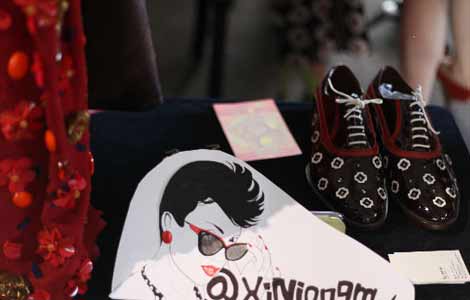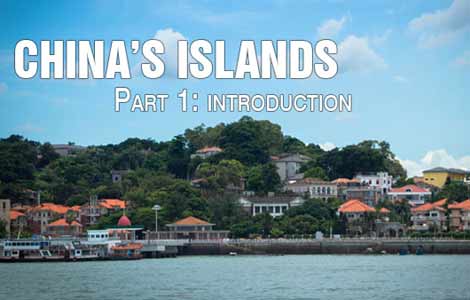Fonterra's infant formula has no botulism risk
Updated: 2013-08-28 16:31
(Xinhua)
|
|||||||||||
WELLINGTON -- New Zealand food safety regulators and dairy giant Fonterra on Wednesday defended their "precautionary" approach in issuing an international alert on dairy products wrongly thought to be contaminated with botulism-causing bacteria, while critics branded the crisis a "fiasco."
Opposition leaders demanded stronger regulation after the Ministry for Primary Industries (MPI) revealed that the whey protein concentrate (WPC) at the center of the scare early this month had not been contaminated with a potentially toxic botulism- causing bacterium.
Releasing a report on the tracing and verification of the WPC produced at Fonterra's North Island Hautapu plant in May last year, the MPI said the organism that sparked the alert was actually Clostridium sporogenes, which was incapable of producing botulism toxins.
"There are no known food safety issues associated with Clostridium sporogenes, although at elevated levels certain strains may be associated with food spoilage," said a statement from MPI.
The report said tests in Australia in March this year had detected a species of Clostridium bacteria in a product that was not specific to the potentially toxic Clostridium botulinum, which was linked to botulism.
This was traced back to the whey protein concentrate and further testing in New Zealand "presumptively confirmed" on July 31 this year that it was Clostridium botulinum, said the report.
"When MPI received information from Fonterra on Aug. 2 that it had detected Clostridium botulinum in some of its products, I immediately adopted a precautionary approach to protect consumers both here and overseas," MPI acting director-general Scott Gallacher said in the statement.
"We needed to act on what we knew at that time. The information we had then said there was a food safety risk to consumers and we moved quickly to address it."
At the same time, MPI commissioned 195 further tests using a range of technologies in laboratories in New Zealand and the United States.
Results from the most definitive of these tests arrived over Tuesday night, and were assessed Wednesday, he said.
"All came back negative for Clostridium botulinum," said Gallacher.
The report said all potentially affected product had been accounted for.
A ministerial inquiry into the crisis is still to be carried out, but MPI would step up regulatory oversight in production plants in the interim.
Fonterra chief executive Theo Spierings said Fonterra had originally commissioned independent testing from the government's AgResearch institute, one of only two research facilities in New Zealand capable of carrying out testing for Clostridium botulinum.
"On the basis of the results we received from the AgResearch tests, we had no choice but to alert regulators, and announce a global precautionary recall with our customers," Spierings said in a statement.
Spierings acknowledged there had been confusion and anxiety arising from the complexity of the precautionary recall and apologized for it.
The opposition Green Party said the MPI report threw up a whole layer of new questions into how the "fiasco" developed.
"Why was the bacteria wrongfully identified in the first place? And given that the original test showed Clostridium botulinum, why was it allowed to continue to progress into the infant formula food chain?" Green Party co-leader Russel Norman said in a statement.
"Why was MPI able to test the product for the bacterium in less than a month whereas it took Fonterra three months and it now seems that they came up with an incorrect result?" he said.
"This new twist in the story is further evidence that we need strong regulations, and can't leave this sort of monitoring up to private companies."
The main opposition Labour Party's primary industries spokesperson, Damien O'Connor, said government cuts to the MPI had led to a failure to ensure the highest standards of testing, monitoring and auditing.
"This fiasco continues to be a disaster for our clean, green brand. The inability of the ministry's systems means our reputation is always at risk," O'Connor said in a statement.
"If New Zealand is to be the exporter of the world's finest goods, it needs testing systems of the highest quality."
Related Stories
Botulism ruled out of Fonterra contamination 2013-08-28 14:23
Fonterra scare puts New Zealand under scrutiny 2013-08-28 13:54
NZ govt launches Fonterra inquiry 2013-08-19 17:30
Fonterra's head of milk products, Romano, resigns 2013-08-14 14:55
Fonterra denies tainted products sent to Russia 2013-08-13 17:25
Today's Top News
China's central authorities back Shanghai FTZ
Son of PLA singer faces rape trial
Sino-Japanese meeting at G20 ruled out
Japan coast guard seeks more money
Party's plenum will focus on reform
Industrial sector's profit picture brightens
Rich Chinese eye overseas properties
New time limits for visa processing
Hot Topics
Lunar probe , China growth forecasts, Emission rules get tougher, China seen through 'colored lens', International board,
Editor's Picks

|

|

|

|

|

|





